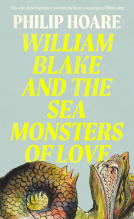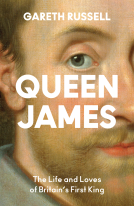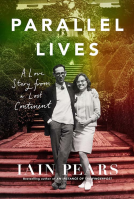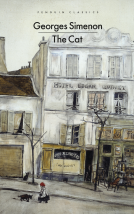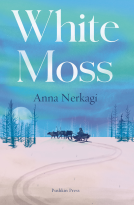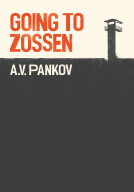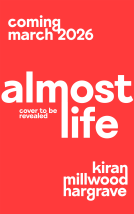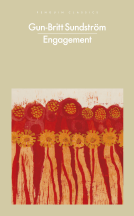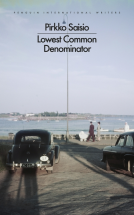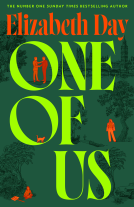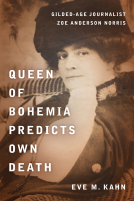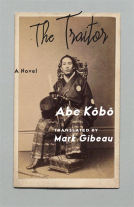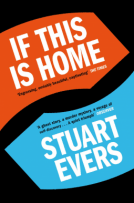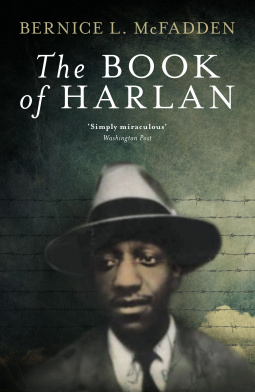
The Book of Harlan
by Bernice L. McFadden
This title was previously available on NetGalley and is now archived.
Send NetGalley books directly to your Kindle or Kindle app
1
To read on a Kindle or Kindle app, please add kindle@netgalley.com as an approved email address to receive files in your Amazon account. Click here for step-by-step instructions.
2
Also find your Kindle email address within your Amazon account, and enter it here.
Pub Date 1 Oct 2016 | Archive Date 23 Dec 2016
Description
The Book of Harlan opens with the courtship of Harlan’s parents and his 1917 birth in Macon, Georgia. After his prominent minister grandfather dies, Harlan and his parents move to Harlem, where he eventually becomes a professional musician. When Harlan and his best friend, trumpeter Lizard Robbins, are invited to perform at a popular cabaret in the Parisian enclave of Montmartre—affectionately referred to as “The Harlem of Paris” by black American musicians—Harlan jumps at the opportunity, convincing Lizard to join him.
But after the City of Light falls under Nazi occupation, Harlan and Lizard are thrown into Buchenwald—the notorious concentration camp in Weimar, Germany—irreparably changing the course of Harlan’s life.
Based on exhaustive research and told in McFadden’s mesmeric prose, The Book of Harlan skillfully blends the stories of McFadden’s familial ancestors with those of real and imagined characters.
Advance Praise
'Simply miraculous' Washington Post
Available Editions
| EDITION | Other Format |
| ISBN | 9781909762435 |
| PRICE | £9.99 (GBP) |
Average rating from 9 members
Featured Reviews
 Diana G, Reviewer
Diana G, Reviewer
The Book of Harlan by Bernice L. Mcfadden begins with the story of Harlan’s parents. The two met in Macon, Georgia in 1917. I really liked the story of their courtship especially about how Sam started going to church just to see Emma who was the minister’s daughter. It was cute and funny and the author described the scenes so vividly that I could imagine these meetings. The courtship led to one of the most beautiful marriages that I have ever read about. It also led to the birth of Harlan.
The character development in the book is great. I felt like I got to know each character very well. The protagonist, Harlan, is based on the author’s grandfather. Harlan is portrayed as a complex character. I liked the guy though it bothered me how he used to treat women especially Gwen. He used women for his selfish needs and discarded them without a second thought. However,Harlan was also a man who would get up at 2:00am in the morning to attend to a friend in trouble. There were many sides to Harlan, some were good were others were not so good. I liked all the other characters in the book. The other took time to develop them really well even if they were supporting characters. They each had a story. However, I wasn’t really happy about how the character of Gwen was developed. We got to know her very well from birth but her story felt like it was cut short prematurely. I wanted to know what happened to her.
The book mentions the Blues making reference to iconic artists such as Louis Armstrong and Bessie Smith. I liked the part that music played in this narrative and how it connected the different characters despite their differences. As readers, we also get to see how music transformed Harlan and a few other artists. Bernice wrote about music in a way that made me feel like I was missing out by not listening to the Blues from that era.
One of the main conflicts in the book is about race. The author shares stories of what it was like being an African American at that time. It is through this book that I learned about Jim Crow. The way the characters view racism was also interesting. Some of them had accepted it as a way of life. For instance; a group of artists on the road saw a motel with a vacancy sign but they past it explaining to one of the youngest artists that the sign didn’t refer to them but rather to the white folks. There are others who resisted it through protests. Leaders such as Dr. Martin Luther King and Malcom X were also referred to in the book.
Surprisingly, Nelson Mandela also came up. This was interesting to me because I didn’t know that there was outside support to end apartheid. The characters refer to protests held after Mandela’s imprisonment. The book has a mixture if facts and fiction so I haven’t been able to confirm this bit but I am definitely interested in the subject.Other conflicts include personal, religious, political and social.
As mentioned in the blurb, Harlan and his friend, Lizard ended up in the Buchenwald concentration camp. The conditions at the camp were deplorable and really hard to read about. This part of the book reminded me of an old movie that I watched years back, Escape from Sobibor(a Nazi extermination camp). The Book of Harlan by Bernice L. McFadden brings out a different perspective about the camps by not only focusing on the Jewish prisoners but also the others. The other victims include black prisoners, gay prisoners of all races, Jehovah Witnesses and even religious prisoners. She tells their stories through different characters. For instance, there is a story of a gay man in the camp. Bernice masterfully introduces new characters to develop the narrative without shifting focus from the main story line. However, I found myself sympathizing with all the prisoners especially those whose stories were shared. The author explains at the end of the book that she decided to do this because ‘the others’ are usually left out of most history accounts. The Witch of Buchenwald, Ilse Koch is also mentioned in this book but as the Bitch of Buchenwald. Her fate is twisted from what is reported in the history books. I liked this ending better though.
This book not only gave accounts of life in the camp but also life after the camp. We get to see Harlan after the camp, struggling to get back to his life with the support of his parents. Themes of depression and PTSD come up through these sections.
The Book of Harlan by Bernice L. McFadden is one of the most moving books that I have read this year. I liked the fact that it covered so many different themes over the span of a number of decades. The narration had an easy flow to it with short chapters and enough dialogue that made it sound conversational. It felt like I was there with Bernice listening to her narrate the story. The characters are very well described through language; physical attributes and even mannerism that made each one of them stand out. I loved this book. It’s a magnificent work of literature and I am glad that Bernice decided to tell her story in this way. The book is based on historical events and so I found it to be both informative and entertaining. I learned so many new things like about Buchenwald Concentration Camp which I didn’t know about before reading this book. McFadden’s writing is amazing and her book has given life to some of the most memorable characters that I have ever encountered. This is a literary gem that I highly recommend to everyone. It’s the only book that I can remember reading and not wanting it to end. Bernice McFadden is undoubtedly a very skillful storyteller. I can’t wait to read her other books.
 Mandy J, Reviewer
Mandy J, Reviewer
Based on the author’s own family history and with a blend of real life and imagined characters, plus some exhaustive and meticulous research, the book chronicles the life of an African-American man from his birth in 1917 and spans much of the tumultuous 20th century. Harlan makes his way from Georgia to become a musician in New York’s Harlem Renaissance, travels to Paris where he plays in the vibrant club scene there, and tragically gets caught up in the Holocaust, an aspect of that terrible time that probably remains largely unknown. After the war he makes his way back to Brooklyn where he becomes caught up in the burgeoning Civil Rights era. I’ve given away more of the plot than I would normally do when writing a review, but in fact most reviews do because it’s difficult to write about the book without discussing Harlan’s life. It’s an unusual subject and I found it both convincing and illuminating. It’s well-written, quick-paced and well-plotted and a thoughtful examination of how one man manages to survive prejudice, hate and bigotry.
Readers who liked this book also liked:
Philip Hoare
Arts & Photography, Biographies & Memoirs, Nonfiction (Adult)
Pirkko Saisio
Biographies & Memoirs, General Fiction (Adult), Literary Fiction
We Are Bookish
Biographies & Memoirs, Health, Mind & Body, Nonfiction (Adult)
